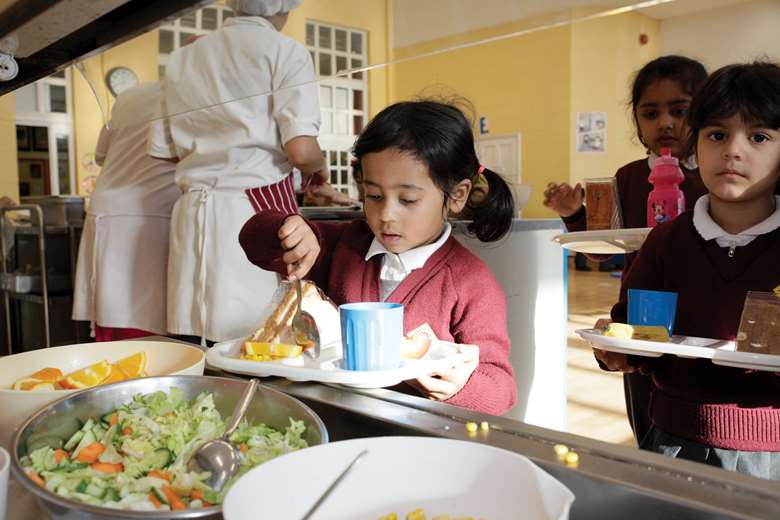Call for watchdog to develop policies to improve childhood nutrition
Nina Jacobs
Friday, April 26, 2019
A children's food watchdog is needed to help young people access more nutritious food, an inquiry set up to investigate children's food insecurity has concluded.

The proposal is put forward in a report by the Children's Future Food inquiry which sought for the first time to analyse the views of children and young people living in poverty across the UK.
It states that for many of the families of the estimated 4.1 million children living in poverty in the UK, it is "unrealistic" for them to afford the levels of nutritious food recommended by the government.
The inquiry puts forward a number of recommendations an independent watchdog could consider costing including extending free school meals and milk to those eligible for free childcare and early years provision.
This extension would also apply to children over seven living in poverty and would increase the value for secondary school children to enable them to afford a meal.
The inquiry wants to see local authorities given advice on how to implement tougher measures against takeaways being opened near school sites.
Additional cash benefits would also be provided outside of school term time to address "holiday hunger". These would need to at least match the cost of free school meals.
The report calculates the lost value of free school meals in the 13 weeks of holidays is approximately £150 per child.
A youth worker in Northern Ireland giving evidence to the inquiry said when children were asked to bring a packed lunch for the holiday programmes, 10 to 15 per cent had no lunch and those who did often brought dry bread, cold microwave chips or biscuits.
The inquiry published its findings as reports emerged that a record 1.6m food bank parcels were given to people in the past year, with more than 500,000 of these going to children.
According to UNICEF figures, 2.5 million British children live in "food insecure" households.
"This means that there are times when their household does not have enough money to acquire enough food, or they cannot buy the full variety of foods needed for a healthy diet," the report states.
- Analysis: Schools key to obesity response
- Feature: Early years food - nourishing growing minds and bodies
The inquiry was made up of a group of young people, aged 10 to 18.
Alongside this, a cross-party group of MPs worked with civil society experts to investigate children's food insecurity caused by child poverty drawing on evidence from young people, frontline staff and academics.
Sharon Hodgson MP, shadow minister for public health and co-chair of the inquiry, said children were falling through the safety net and families were having to rely on charities and service providers for breakfast clubs, holiday provisions and foodbanks.
"These children, and their families, need support from the government in order to have access to healthy and affordable food.
"The government must take this issue of food poverty seriously, and it must include young people in the conversation," she said.
Speaking at the Westminster launch of the report, children's minister Nadhim Zahawi said it was critical young people's views were heard in shaping provision.
He said a new holiday activities and food programme launched last summer had supported more than 18,000 disadvantaged children providing access to nutritious meals.
Funding had now been increased to £9m for this year and it was hoped to improve on the success of last year's programme, he said.
"I am very proud that also, under the Childhood Obesity Plan, my department is investing up to £26m in the National Schools Breakfast Programme, as delivered by the charity Family Action in partnership with Magic Breakfast.
"This programme is setting up or improving more than 1,700 breakfast clubs in schools in the most disadvantaged areas across the country," he added.
The inquiry's evidence was gathered from workshops with nearly 400 children in 13 locations around the UK as well as an academic review of child food insecurity which polled young people aged 11 to 18.
More than 100 submissions of evidence were submitted from professionals working with children and assessed alongside a UK-wide policy review and analysis of government data on the affordability of a healthy diet.




